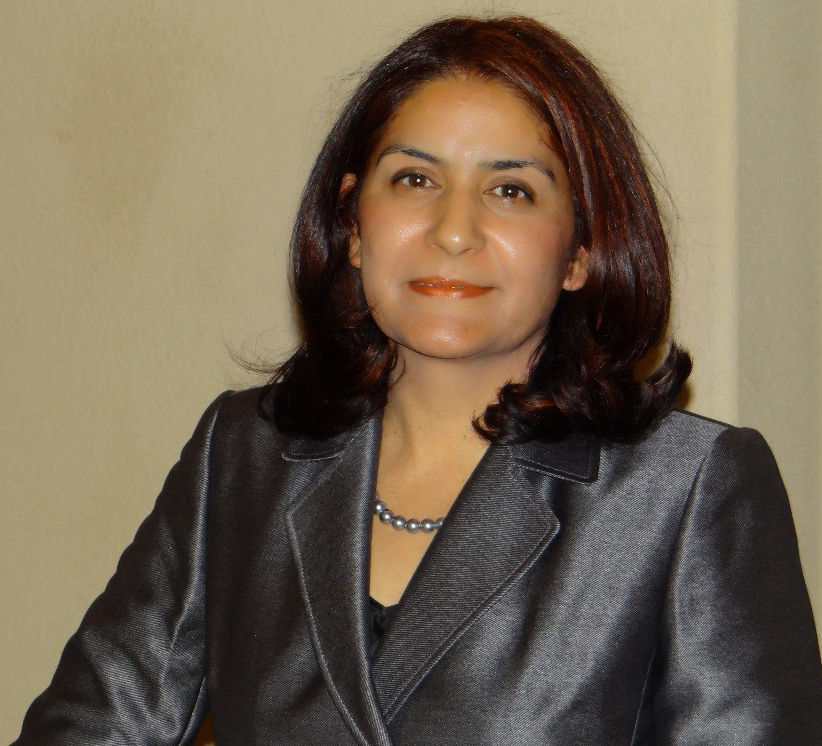
DENTON (UNT), Texas -- Anupama Kaul has been named director of the University of North Texas College of Engineering’s PACCAR Technology Institute. Kaul, who comes to UNT from the University of Texas at El Paso, will be the PACCAR professor in engineering and a professor in the Department of Materials Science and Engineering, with a joint appointment in the Department of Electrical Engineering.
“Dr. Kaul will be an excellent addition to our growing faculty and will be integral in taking the PACCAR Technology Institute to the next level,” said Costas Tsatsoulis, dean of the College of Engineering. “She brings with her an impressive background in nanomaterials, and we’re looking forward to seeing what she will accomplish at the College of Engineering.”
Kaul, who will join UNT on Sept. 1, says she is excited about the opportunity to build on the institute’s strong reputation.
“I am honored to serve as director of the PACCAR Technology Institute and look forward to the exciting ways in which the institute will embrace interdisciplinary research in strategic areas of national and global significance, with nanotechnology as a core enabling element,” Kaul said. “I am enthusiastic about working with the exceptional faculty and students in the College of Engineering and am eager to engage in partnerships with the broader UNT community, as well as externally with other universities, industry and government labs.”
Kaul obtained her Ph.D. from the University of California at Berkeley and was a senior member of the technical staff at the California Institute of Technology’s Jet Propulsion Laboratory from 2002-14. Kaul, who joined UTEP in 2014 as the associate dean for research and graduate studies in the College of Engineering and held the AT&T Distinguished Professorship, says connections are key to the lab’s continued success.
“Partnerships will be vital to enhance the growth and increase the visibility of PACCAR, with the vision that it will serve as a regional hub for innovative research and development in nanoscience and nanotechnology,” Kaul said.
From 2011-14, Kaul served as a program director in the Engineering Directorate at the National Science Foundation while on Intergovernmental Personnel Act Assignment from JPL-Caltech. She was invited to participate in the National Academy of Engineering’s Frontiers of Engineering Symposium in 2012 and has multiple NASA Patent Awards, a NASA Team Accomplishment Award, the NSF Director’s Award for Program Management Excellence and invited book chapters and publications on nanoscale science and nanotechnology.
“It will be my priority as the director of PACCAR to emphasize interdisciplinary research so students gain new perspectives by learning to work collaboratively with researchers from other disciplines to solve pressing problems,” she said. “My own research group is an ecosystem in this exercise where electrical engineers are working closely and side-by-side with chemists, materials scientists, mechanical engineers and biomedical engineers. These are important skills that will prepare students well to enter an ever-increasingly diverse workforce, where collaborations are valued more and more.”
Kaul’s research is focused on exploring the electronic, optical and mechanical properties of nanomaterials and nanostructures and to find useful applications for them in various types of devices. Often, materials at the nanoscale (one nanometer is equal to one billionth of a meter) show properties that are unusual and different from the bulk or parent material and can be modified or used to create other hybrid systems.
Kaul also is interested in finding low-cost, scalable ways to manufacture these materials for practical devices. The applications for these devices may range from using the materials to make faster computer chips for portable, light-weight electronics, to developing various types of miniaturized sensors for detecting light, pressure or mechanical strain, or for converting the vast energy from the sun to electricity for solar cell applications. Her research is currently funded by grants from the Army Research Office, the Air Force Office of Scientific Research and the NSF.
Speaking on student education and training, Kaul noted that she looks forward to engaging new doctoral and masters students from UNT to join her research team as she transitions her research group from UTEP to UNT.
“The state-of-the-art facilities available to graduate students at UNT for materials research are excellent, and will certainly be critical to help accelerate their work,” she said. “These facilities should also provide a means for undergraduates to pursue short, well-defined projects so they gain first-hand experience in research, which should provide a stepping stone for them to pursue advanced degrees and careers in the STEM disciplines.”
About PACCAR Technology Institute
PACCAR Technology Institute is a unique, non-traditional center for research and educational excellence which works on a variety of research topics related to cutting edge engineering research problems that span multiple disciplines. As an interdisciplinary research unit of the University of North Texas, PACCAR brings together academic researchers and industry experts from various physical and social sciences and engineering disciplines.




